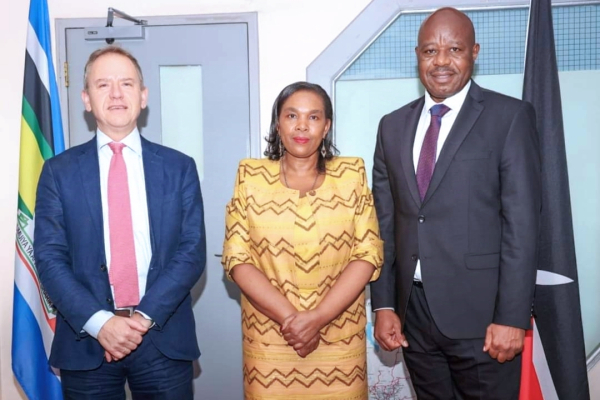For several years, Kenya has been working to accelerate its economic development. The country has identified a few issues within its state apparatus that are slowing progress toward achieving this goal.
Margaret Ndung'u (photo, center), Kenya's Minister of Information, Communication, and Digital Economy, met last week with a United Nations delegation led by Stephen Jackson, the UN Resident Coordinator in Kenya. The discussions focused on the importance of partnering to leverage digital technology to track illicit financial flows and combat cybercrime.
According to the ministry, the UN also emphasized the need to develop the necessary infrastructure, train law enforcement to tackle cybercrime, create digital labor policies, and devise a strategy for digital job creation.
This initiative follows Kenya’s request for an International Monetary Fund (IMF) audit to assess the impact of corruption and mismanagement of state resources on public finances. In Transparency International’s latest Corruption Perception Index, Kenya ranks 126th out of 180 countries.
On the cybersecurity front, Kenya is a global leader, ranking in Tier 1 with a score of 98.59 out of 100, according to the International Telecommunication Union’s "Global Cybersecurity Index 2024" published in September. However, cybercrime losses in Kenya could reach $383 million, according to the "Reimagining the African Cybersecurity Landscape" report released in 2023 by Serianu, a Kenyan cybersecurity consultancy.
UN support could help effectively combat these challenges and position digital technology as a driver of social development, as outlined in Kenya's national strategy. This UN assistance hinges on conditions such as media freedom, the protection of information integrity, the regulation of digital platforms and combating misinformation.
Adoni Conrad Quenum



















